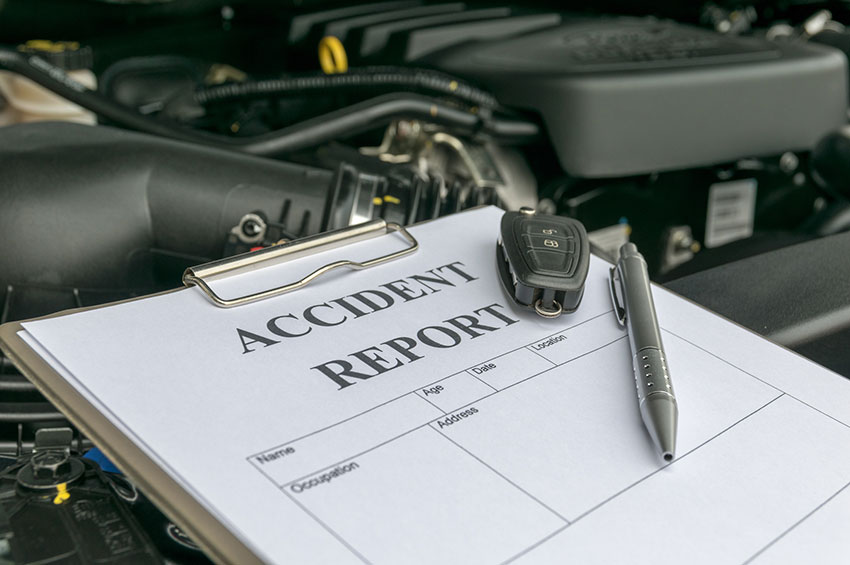
- June 17, 2025
- Attorney David Mann
- Motorcycle Accident
Motorcycle riding is an exhilarating way to travel and enjoy the open road. However, with the freedom and excitement of riding a motorcycle comes an increased risk of accidents. If you are involved in a motorcycle accident in Georgia, it’s crucial to understand how the state’s laws may affect your case, especially the comparative negligence rule.
In this blog post, we will explore Georgia’s comparative negligence rule and what motorcyclists need to know to protect their rights and ensure they receive fair compensation.
What is Comparative Negligence?
In simple terms, comparative negligence is a rule used to determine how blame (or “negligence”) is divided in an accident. If multiple parties are involved in an accident, the law helps decide how much fault each party shares. Under this rule, the amount of compensation a person can recover depends on the percentage of fault assigned to them in the incident.
In Georgia, the rule is called “modified comparative negligence.” This means that a person can recover compensation if they are less than 50% at fault for the accident. If you are found to be 50% or more at fault, you are not entitled to any compensation.
How Does Fault Get Determined in a Motorcycle Accident?
The process of determining fault in a motorcycle accident can be complex. The parties involved, witnesses, law enforcement, and insurance companies will all play a role in figuring out who is at fault and how blame should be divided. Here are some factors that might influence how fault is assigned in a motorcycle accident:
- Evidence of Speeding – Speeding is a common factor in motorcycle accidents. If you were speeding at the time of the accident, you might be found partially responsible. However, even if you were speeding, the other driver may still hold more fault if they were also violating traffic laws.
- Helmet Laws – Georgia law requires motorcyclists to wear helmets; if you were not wearing one at the time of the crash, the insurance company or court might reduce your compensation.
- Road Conditions – Poor road conditions, such as potholes, debris, or slippery surfaces, can also contribute to motorcycle accidents. If road conditions played a significant role in the accident, this could be a factor in determining fault.
- Traffic Violations – If one party ran a red light, failed to yield, or committed other traffic violations, they may be found negligent and liable for injuries caused in an accident. However, even if they bear some responsibility for causing the crash, your actions could still reduce the amount of compensation you are eligible to receive.
- Witness Testimony – Eyewitnesses to the accident may provide valuable information to help determine who was at fault. Their testimony can play a crucial role in establishing liability.
Why is Comparative Negligence Important for Motorcyclists?
Understanding Georgia’s comparative negligence rule is especially important for motorcyclists because motorcyclists are often seen as more vulnerable and may be blamed more frequently in accidents. Additionally, insurance companies tend to be more skeptical of motorcyclists and might attempt to shift the blame onto them, even if they are not entirely at fault.
Here are a few reasons why motorcyclists need to be aware of the comparative negligence rule:
- Insurance Company Strategies – Insurance companies may try to minimize payouts by claiming that you were partly responsible for the accident. They may use your speed, riding behavior, or lack of protective gear against you in the claims process. Understanding how comparative negligence works will help you prepare and protect your case.
- Potential to Reduce Compensation – Even if you are not entirely at fault, the amount of compensation you receive could be reduced based on your degree of responsibility. Knowing how fault will be calculated can help you work with an attorney to minimize any negative impact on your settlement.
- Navigating Legal Complexity – Motorcycle accidents can be legally complex, particularly when it comes to determining fault. By working with an experienced Macon personal injury lawyer, motorcyclists can ensure they understand how the law applies to their case and can better advocate for fair compensation.
Why You Should Hire a Georgia Motorcycle Accident Injury Attorney For Your Claim
You may think you can handle your insurance claim by yourself, without hiring an experienced attorney to guide you through the process. However, an attorney understands the process of filing a claim and is your best bet for obtaining a fair settlement with the insurance companies. Here are other reasons to hire an attorney:
- Estimate of compensation – An attorney will look over your medical records and the police reports and provide an estimate on how much you could receive in compensation.
- Interview witnesses – An attorney will speak to the eyewitnesses to the accident and will obtain, if necessary, signed affidavits from them.
- Speak to First Responders and Medical Staff – Your attorney will conduct interviews to make a causal connection between the accident and your injuries.
- Negotiate with insurance companies – Your attorney will negotiate with the insurance companies on your behalf to come to a fair settlement.
- File a lawsuit – If a fair settlement can’t be reached, your attorney will file a suit in a court of law and try your case in front of a jury.
We hope this blog post helped you understand Georgia’s comparative negligence rule and what motorcyclists need to know to protect their rights and ensure they receive fair compensation.
Call The Georgia Motorcycle Accident Attorneys at The Mann Law Firm Today
The Mann Law Firm has been fighting for our clients’ rights for over 30 years. We understand the stress you are under after a motorcycle accident and will be there for you from the day of our initial consultation to the day of settlement. Give us a call today at (478) 742-3381 to set up an appointment. At the Mann Law Firm, you always come first.



 Before leading his own firm, Mann served for several years as in-house defense counsel for a large insurance company, which gives him unique insight into how insurance companies work. He uses this critical knowledge as an advantage for his clients. He is a tough negotiator and litigator, and he is exceptionally strategic in building cases on behalf of personal injury victims.
[
Before leading his own firm, Mann served for several years as in-house defense counsel for a large insurance company, which gives him unique insight into how insurance companies work. He uses this critical knowledge as an advantage for his clients. He is a tough negotiator and litigator, and he is exceptionally strategic in building cases on behalf of personal injury victims.
[ 